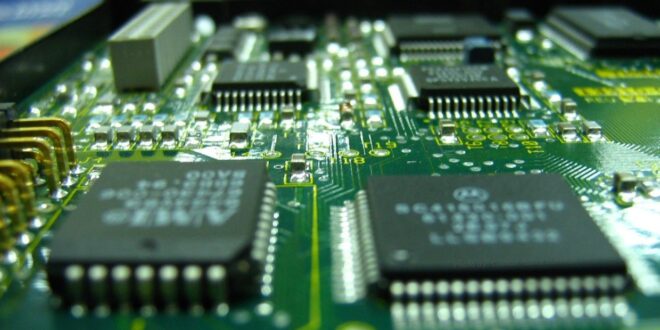PETALING JAYA: Technology stocks have been in the doldrums for the past 18 months due to weakening global tech demand and inflationary pressures that triggered an inventory glut across the industry.
While there has been a slight uptick in the Bursa Malaysia Technology Index this trading week, year-to-date, the index is down by 2% and has remained largely range bound since May 2022.
Globally, the outlook for tech counters is mixed, with the tech-heavy Nasdaq looking set for a boost following well-received earnings from Meta Platforms and Amazon.com earlier this week.
Meanwhile, the Chinese stock market still remains soft despite its government’s attempt to restore confidence in the economy and halt the prolonged slump in the stock market that has wiped out US$6 trillion in value in three years.
Tradeview Capital chief executive officer Ng Zhu Hann said the earnings of local tech companies in the upcoming quarter will likely remain weak and the sluggish demand and oversupply leading to overstocked inventory remains a persistent issue in the local technology sector, particularly for companies that are impacted by the Chinese market.
“If the Chinese market experiences a recovery in the second half of this year, we can expect to see an increase in demand, which would subsequently lead to improved earnings for local tech stocks.
“However, in the near term, particularly over the next three to six months, I do not think there will be much improvement in terms of the fundamental earnings contributions for the local tech stocks.
“Nonetheless, in the second half of the year, we may start to see a strong recovery performance from our tech companies, reflected both in their earnings and share prices,” he told StarBiz. Ng said the recovery in the global tech sector is not broad based and it is predominantly benefiting those directly involved in the artificial intelligence (AI) theme.
Hence, local companies whose customers are actively embracing and moving strongly in the adoption of AI stand to gain more while those servicing customers who are still entrenched in traditional businesses like mobile devices and laptops may not benefit as much.
“Given that Malaysia’s semiconductor industry is so integrated with the international global supply chain, what will eventually happen is that all the tech giants will eventually pivot to have exposure in AI.
“Hence, ultimately, this will trickle down and local tech firms will benefit as well.
“However, there will be a time lag of six to 12 months from now before we can see this play out as the facilities in Malaysia undergo repurposing to support the AI industry,” he said.
Moreover, Ng said the lack of investor and consumer confidence is the bigger problem for the Chinese economy and not just the tech stocks there.
“However, the Chinese government is putting in a lot of stimulus plans to push and encourage the capital market and investors to return. I think this may take a little while to materialise.
“Data flows in China also need to show some improvement overall, indicating that the health of the Chinese economy is actually bottoming out before we can see an improvement or a turnaround. This situation, in turn, will affect the tech stocks.
“Nevertheless, I think at this juncture, China is too cheap to ignore and it is a good time to start accumulating some of these stocks and hold it with a long-term perspective.
“You will then see the substantial upside potential and recovery. There is very little downside left for China in my view,” he said.
Meanwhile, Mercury Securities said the recent rise in the Bursa Technology index is fuelled by a combination of recent selldowns, the recovery of US stocks and the relocation of orders to South-East Asia amid the persistent US-China technology war.
The research house noted that while there has been a lack of AI-related activities across local tech stocks, this uptick does not necessarily signal a renewed interest in these specific sectors.
Instead, it reflects broader market dynamics influenced by external factors.
“Given the absence of AI stocks in Malaysia, investors may consider focusing on emerging sectors such as electric vehicle (EV) and green energy stocks.
“The ongoing global push for sustainability and environmental responsibility has propelled interest in companies operating within these domains.
“Factors that could spur buying interest in these counters include government incentives in promoting clean energy adoption, the introduction of low carbon policies, increasing consumer awareness of environmental issues and advancements in EV technology,” it said.
Mercury Securities said notable tech stocks to watch in Malaysia’s EV and green energy space include Greatech Technology Bhd, Genetec Technology Bhd and D&O Green Technologies Bhd, as these companies stand to benefit from growing investor interest in sustainable technologies and the shift in focus towards green energy solutions.
Tech layoffs continue to be on the rise in the United States among big names like Amazon, Google, Microsoft and Salesforce.
However, Ng pointed out that unlike last year when layoffs are part of cost-saving measures, weaker earnings, poorer outlook and overhiring during the pandemic, layoffs this year are mainly because of AI that has led to redundancy in non-critical roles.
Areca Capital Sdn Bhd chief executive officer Danny Wong said there is still no obvious interest for tech counters as the local tech benchmark index is still down by about 2% year-to-date.
He expects interest in tech stocks to reappear when local tech companies start obtaining orders from their front-end customers.
“As for the tech layoffs that are happening in the United States, there was a rush for hire post-pandemic reopening and the tech layoffs are partly due to such overhiring. Hence, subsequent adjustment is normal.
“The advent of AI and ChatGPT also made some jobs redundant and thus adjustment required. The Magnificent Seven tech companies are still reporting good profit margins and thus the rosy outlook is still intact,” he said.
Equitiestracker Holdings Bhd chief executive officer Alvin Vong said while a couple of tech companies have managed to rebound from their all-time lows, most companies are still trading below their all-time highs.
Vong said AI is often narrowly focused on chips or chip design, particularly those related to AI-specific microchips like Nvidia.
He noted that it is important to look at the entire AI value chain on a whole and one aspect that tends to be overlooked is the role of storage space, especially in the training of AI models.
“Training AI models requires substantial amount of data, and traditional hard disk drives remain one of the most reliable and cost-effective forms of storage.
“Several hard-disk drive component manufacturers are listed on Bursa Malaysia, yet they often receive less attention from analysts.
“So while we may not have much direct AI exposure, data and storage are crucial parts that enable AI to thrive and function effectively,” he said.
Looking ahead, Vong said the replacement market is a constant factor as whenever new products, such as those from Apple, are launched, there is always a demand for replacement parts or upgrades.
“The continuous growth of tech-enabled products in our lives reinforces this trend.
“It is not necessarily a specific catalyst that drives this demand but rather a long-term trend of increasing dependence on semiconductors, cloud computing and other tech infrastructure,” he said.
 BeritaKini.biz Berita Viral Terkini di Malaysia
BeritaKini.biz Berita Viral Terkini di Malaysia





